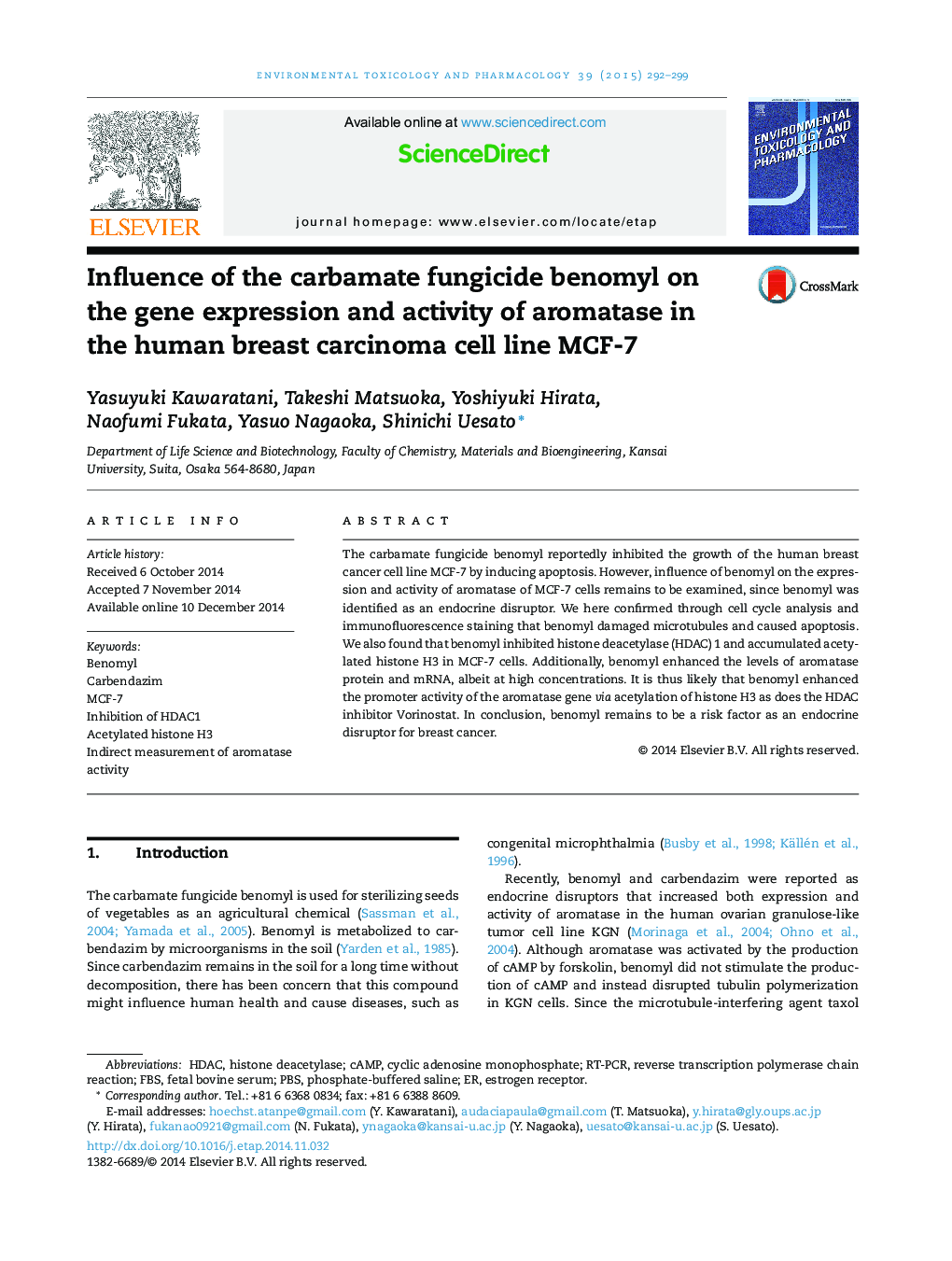| Article ID | Journal | Published Year | Pages | File Type |
|---|---|---|---|---|
| 2583288 | Environmental Toxicology and Pharmacology | 2015 | 8 Pages |
•We found that benomyl inhibited HDAC1 and accumulated acetylated histone H3 in MCF-7. Benomyl increased the levels of aromatase protein and mRNA at high concentrations. Benomyl enhanced the aromatase promoter activity via acetylation of histone H3. Benomyl remains to be a risk factor as an endocrine disruptor for breast cancer.
The carbamate fungicide benomyl reportedly inhibited the growth of the human breast cancer cell line MCF-7 by inducing apoptosis. However, influence of benomyl on the expression and activity of aromatase of MCF-7 cells remains to be examined, since benomyl was identified as an endocrine disruptor. We here confirmed through cell cycle analysis and immunofluorescence staining that benomyl damaged microtubules and caused apoptosis. We also found that benomyl inhibited histone deacetylase (HDAC) 1 and accumulated acetylated histone H3 in MCF-7 cells. Additionally, benomyl enhanced the levels of aromatase protein and mRNA, albeit at high concentrations. It is thus likely that benomyl enhanced the promoter activity of the aromatase gene via acetylation of histone H3 as does the HDAC inhibitor Vorinostat. In conclusion, benomyl remains to be a risk factor as an endocrine disruptor for breast cancer.
Graphical abstractFigure optionsDownload full-size imageDownload as PowerPoint slide
